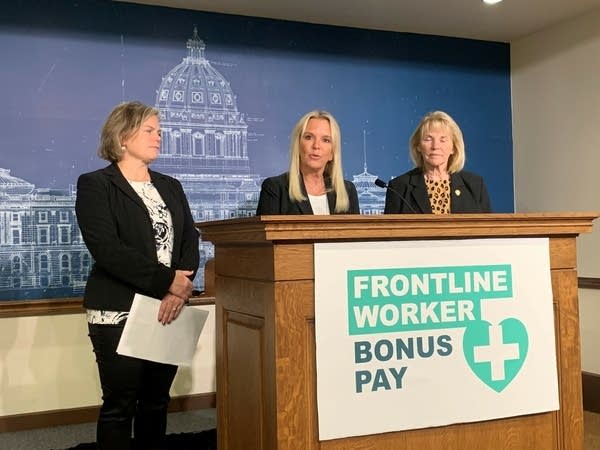State panel deadlocks over how to give away $250 million in hero pay

Rep. Anne Neu Brindley, Sen. Karin Housley and Sen. Mary Kiffmeyer announced a plan to distribute $250 million in bonuses to front-line pandemic workers last month. But the Republican lawmakers couldn't reach an agreement with their DFL colleagues.
Brian Bakst | MPR News file
Go Deeper.
Create an account or log in to save stories.
Like this?
Thanks for liking this story! We have added it to a list of your favorite stories.


